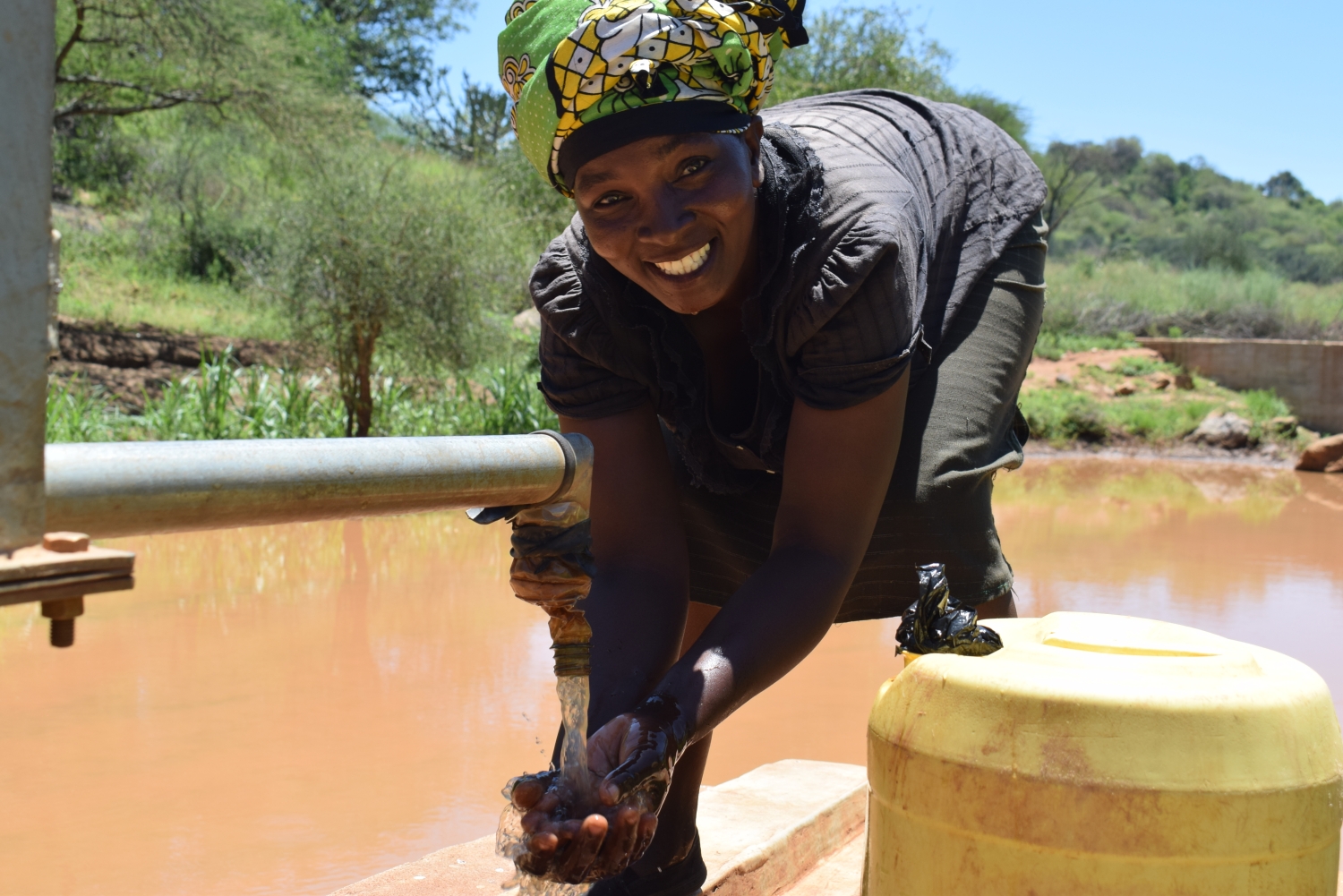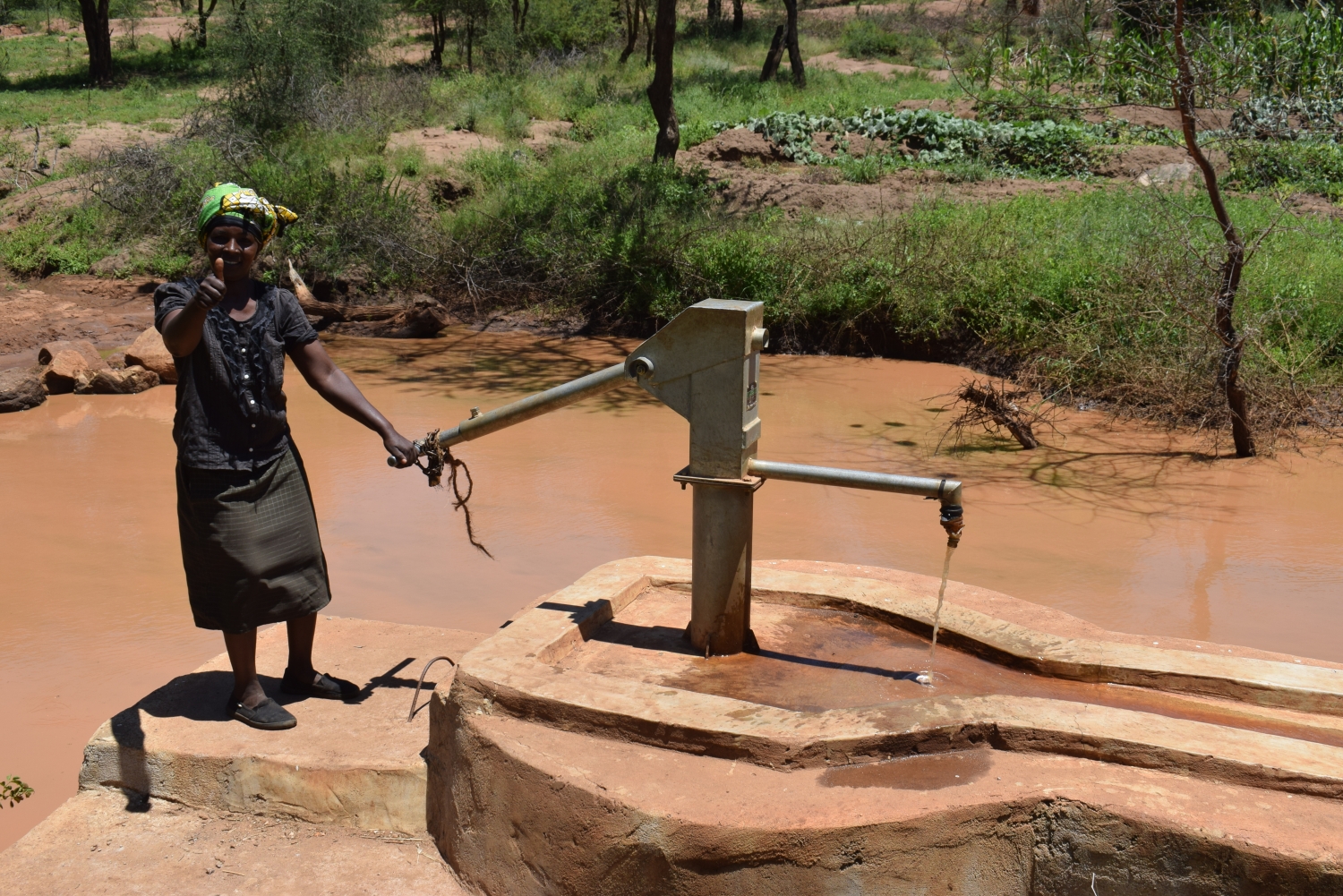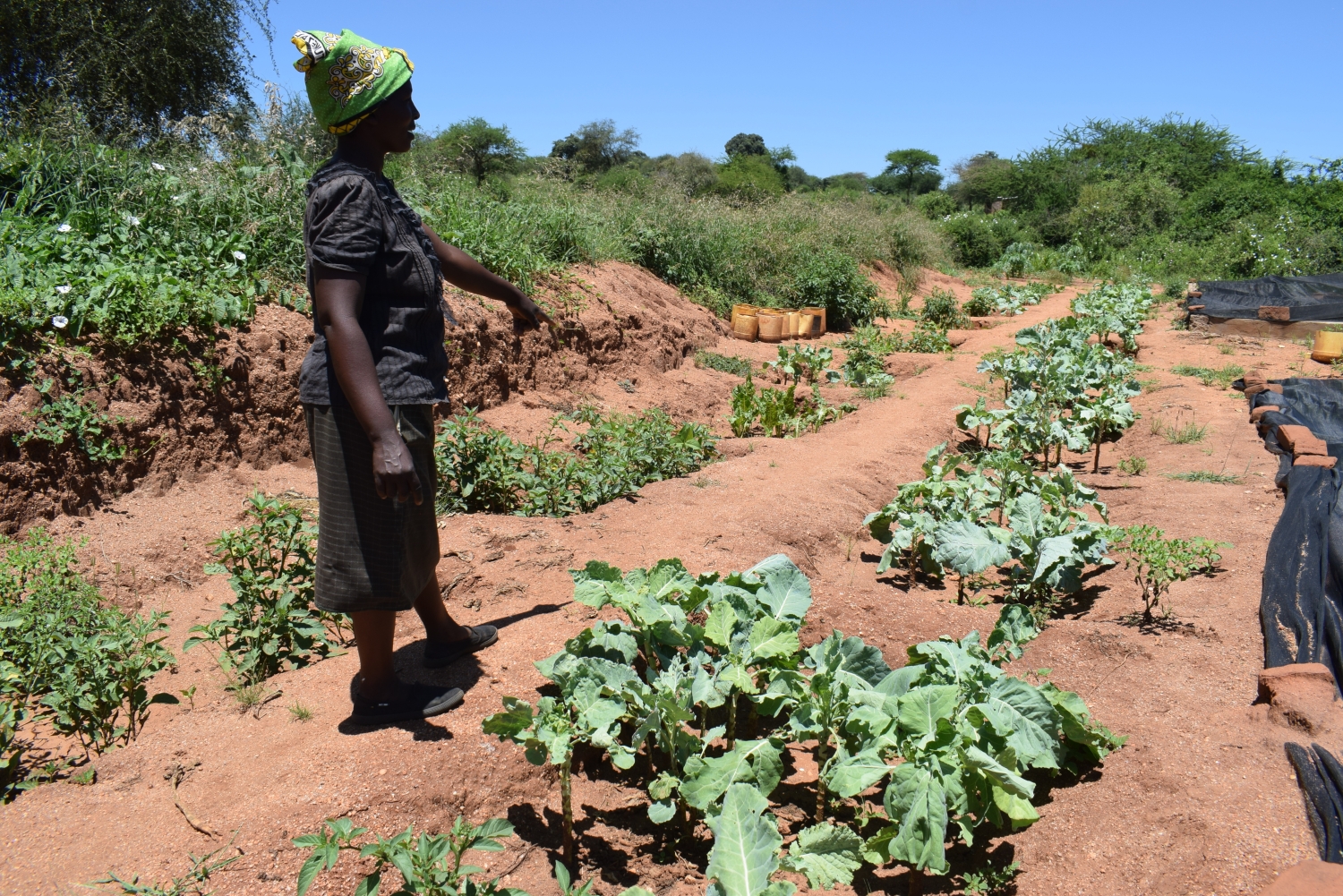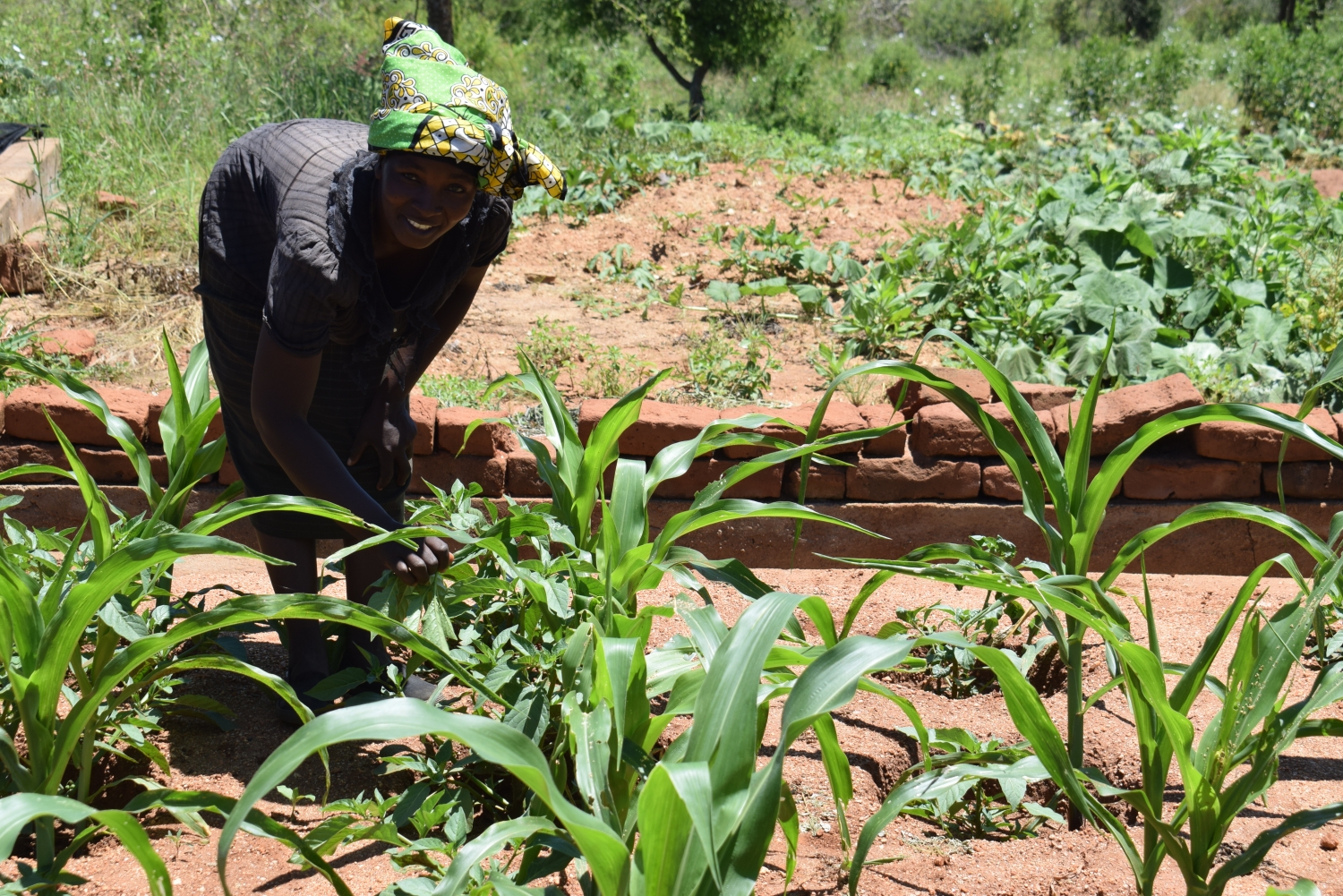Water Lets Gardens, and Independence, Flourish

Mary Mutua at the well
Each morning, Mary Mutua would wake up to walk more than 1.5 miles to fetch water from the Kituluni River. Hundreds of people in Maluvyu Village relied upon the seasonal river for water. Mary often waited in line to collect water from a seasonal scoop hole. On the days she did not want to wait, Mary woke up very early to reach the river before the others arrived.
All of this work was done for water that was not safe for consumption. People here would often experience waterborne illnesses as a result of drinking unsafe water from the open scoop holes.
“The quest for water was very time consuming, and very little was accomplished in a day as lots of our time was expended on the task of fetching water,” Mary explained.
A year ago, Mary and her fellow members of the Ngwatanio Ya Utui wa Maluvyu Self-Help Group worked with The Water Project to construct a new sand dam and hand-dug well. The project was a success and significantly impacted Mary’s life.

Mary gives thumbs up while pumping water.
“Now, I can leave food cooking on my jiko (stove) and rush to fetch water in a few minutes and go back home. This project has really saved my life in terms of development at my homestead. The water is very pure and sweet for drinking,” she said.
“I feel very blessed to have water nearby, which has motivated me to start a vegetable garden at home. My children can now have various meals and a varied diet because I can farm any crop I want. I also sell the vegetables and fruits on my farm at Kathonzweni Market. I can have my own money and not entirely depend on my husband to make ends meet.”

Mary shows off her garden
In the past, Mary was unable to support a garden like this. Southeast Kenya, where she lives, is semi-arid, receiving little rain throughout the year. Before the project, Mary relied upon seasonal river channels for every water need – from drinking to bathing to farming.
With the sand dam, the water from the seasonal rains is stored in the sand that gathers behind the dam. The adjacent well allows for water extraction throughout the year – even in the dry season. Mary’s gardens are the result of access to water all year round.
Mary and the other self-help group members are also using the well to improve their financial savings. The regularly collected fees for the well’s use support the water point if it needs repairs, and fund the group’s savings account. They use the account to make loans to the members so they can invest in themselves and the development projects they choose to pursue.
“The community members have agreed to buy water from our water point, which we plan to save in our group table banking,” Mary said “During the dry season, the water point will be strictly under lock and key policy and will be opened at specific times when people want to buy the water. Community members are pleased with the water point because it has fresh water and is easy to use.”

Mary in her garden
Tweet